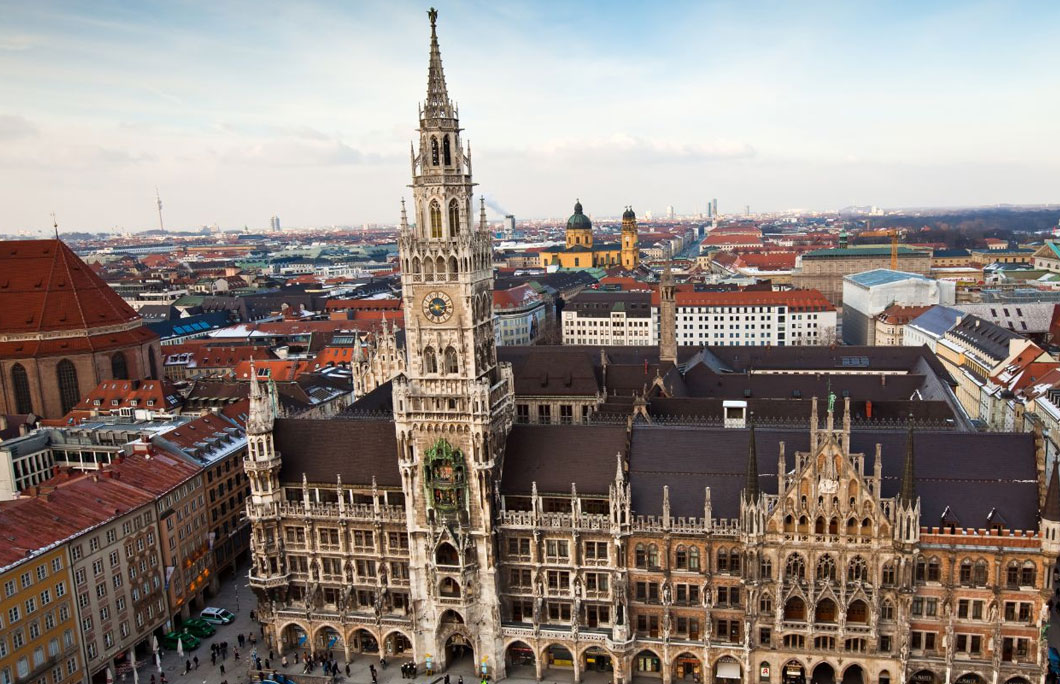The Things You Should Know About Munich
Famed for its rich history, Oktoberfest, beer and football, Munich is one of Germany’s most popular destinations. Around three million tourists hotfoot here every year, but how much do you know about the Bavarian capital? From thousand-year-old monasteries to ancient latrines, here are a few interesting facts about Munich you might not have heard before.
If you are planning a trip to Munich, here are 7 interesting facts About Munich

1. Munich has monkish origins
The word ‘Munich’ derives from the Old High German term Munichen, which means ‘by the monks’. The city’s origins date back to a Benedictine monastery in Tegernsee, founded in 750 AD. In 1157, Henry the Lion (Duke of Bavaria) granted the monks the right to build a market where Isar River meets the road from Salzburg. The monks built the market and a bridge across the Isar a year later. The rest, as they say, is history.
In 1806 it became part of the sovereign kingdom of Bavaria and a major hub for arts, architecture and culture.

2. The oldest building in Munich is actually a toilet
The oldest building in Munich dates back to 1260. It’s a toilet. Archaeologists discovered the building outside the city gates, which revealed that Munich was much bigger than historians thought it was back in the 13th century.
For such an old city, Munich is surprisingly modern. World War II bombing destroyed more than 50% of the entire city and 90% of the historic centre. Adolf Hitler became the leader of the Nazi party in Munich and it was here that he held the private meetings in the cellar that led to the famous Beer Hall Putsch (rising). After the Nazi rise to power, it became the ‘Capital of the Movement.’

3. Munich is home to the largest beer festival in the world
Beer is a big deal all over Germany, but nowhere more so than in Munich. The Munich Oktoberfest, which takes place at the end of September and finishes in October, is the world’s biggest beer festival. Originally, it celebrated the wedding of King Ludwig II. There are more than 60 beer gardens and six major breweries dotted around the city too.
Speaking of beer, did you know that in Bavaria beer is legally considered a food? The 500-year old Beer Purity Law, decreed on 23 April 1516 by Duke Wilhem, protects the city’s beer drinkers from contaminants, chemicals and additives. It is still in effect today and dictates how beer is officially made in Bavaria.

4. The Olympiapark hill is made of something unusual
The Olympiaberg might look like your average hill, but it’s not made of soil. The hill is actually made from rubble created during World War II. It was built for the 1972 Olympics.
The hill offers sweeping 360-degree views that stretch all the way to the Alps on a good day. It’s also home to the city’s highest beer garden, an excellent spot to (literally) lift your spirits.

Editorial credit: Pit Stock / Shutterstock.com
5. You can go surfing in Munich
Munich might be landlocked but that doesn’t mean you can’t enjoy big swells. Head five minutes from downtown Munich to the entrance of the Englischer Garden park and you’ll see a dozen river surfers catching the waves on a channel running off the Eisbach River. The ice-cold waves can reach heights of one metre. It’s widely regarded as one of the largest and best city centre river surfing spots in the world. People have been surfing here for more than 40 years.

Editorial credit: Viacheslav Lopatin / Shutterstock.com
6. Munich is the home of BMW
The German car brand’s headquarters are located in the BMW Tower in Am Riesenfeld, Munich in BMW Tower. Built between 1968 and 1972, the tower opened in 1973 after the Olympics. It sits next to BMW’s main factory.
The building’s exterior mimics the shape of four cylinders in a car engine, with the museum representing the cylinder head. Austrian architect Karl Schwanzer designed the building. Interestingly, it’s one of the tallest buildings in the city because authorities banned structures taller than 99 metres in 2003. The BMW Tower became a protected historic building in 1999.

7. Munich invented play-doh
Indeed. The pharmacist Franz Kolb invented the plasticine machine to help out his artist friends, who struggled to model clay during the colder months.

 AU
AU  US
US  CA
CA  DE
DE  ES
ES  FR
FR  IT
IT  PT
PT  DA
DA  SV
SV  NL
NL  RO
RO  PL
PL  FI
FI  HU
HU  NB
NB  EL
EL  TR
TR  UK
UK  CS
CS